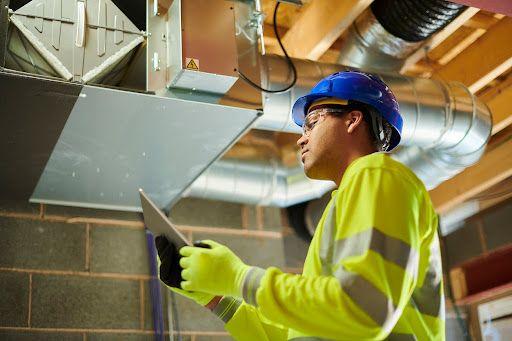Should Ductwork Be Replaced After 20 Years?

Although often hidden out of sight, your HVAC system’s ductwork plays a critical behind-the-scenes role in maintaining comfort throughout your home by transporting conditioned air from the central HVAC system to your living areas.
Like your central heating and cooling equipment, your air ducts have a limited lifespan, prompting many homeowners to wonder when they should replace their ductwork, especially when it’s more than 20 years old. HVAC.com discusses the average lifespan of ductwork, common signs indicating duct replacement is necessary, and whether you should replace ductwork with a new HVAC system.
How Long Does Ductwork Last?
Should ductwork be replaced after 20 years? It depends. Generally, ductwork lasts about 10 to 25 years, hinging on factors such as maintenance, duct type, and installation quality.
Signs Your Ductwork Should Be Replaced
Instead of relying solely on the age of the ductwork, homeowners should consider replacing their air ducts when they observe certain signs, including:
Visible Damage
Over time, ducts may develop holes and cracks, resulting in a loss of conditioned air. While minor damage can be repaired, extensive damage in ductwork over 15 years old may warrant duct replacement.
Increased Energy Costs
Inefficient ductwork and increased energy bills typically go hand in hand. Ineffective ductwork can cause your HVAC system to work harder to reach the set temperature, leading to higher utility costs.
Inconsistent Heating and Cooling
Do some rooms in your home feel hotter or colder than others? Inconsistent temperatures throughout your home may result from ductwork issues such as leaks and blockages.
Mold and Water Damage
According to the U.S. Environmental Protection Agency, insulated ductwork should be replaced if it gets wet or moldy because it cannot be cleaned effectively.
How Can Different Types of Ductwork Impact Longevity?
The type of ductwork found in your home can also impact how long it lasts.
- Sheet metal ductwork, found in most residential homes, is most commonly manufactured from galvanized mild steel. When properly installed and maintained, sheet metal ductwork is durable enough to last up to 25 years or more.
- Flexible ductwork is known for its versatility, ease of installation, and low cost. It’s typically used in homes where rigid ductwork cannot be easily installed. However, due to its thin material, flexible ductwork is more likely to become damaged due to crushing or tearing. It may require replacement after 10-20 years.
- Fiberglass ductwork has become less common due to concerns about its potential to deteriorate and release fiberglass particles into the air. Many homeowners and HVAC professionals now prefer other materials like sheet metal or flexible ductwork for their durability and performance.
Should You Replace Ductwork with a New HVAC System?
When installing new heating and cooling systems, many homeowners wonder if they should replace the ductwork at the same time. Upgrading to a more energy-efficient HVAC system may require replacing older ductwork, as differences in duct sizes or configurations could affect compatibility. While this adds to the initial cost, it ensures optimal functionality and long-term energy savings.
However, if the existing ductwork is relatively new, properly sized, and in good condition, replacement may not be necessary when installing a new HVAC system.
During the buying process, speak with a qualified HVAC contractor to determine whether it makes sense to replace your existing ductwork while you install a new heating and cooling system. They can assess the condition of your current ductwork and consider important factors such as its compatibility with the type of HVAC system you plan to purchase.